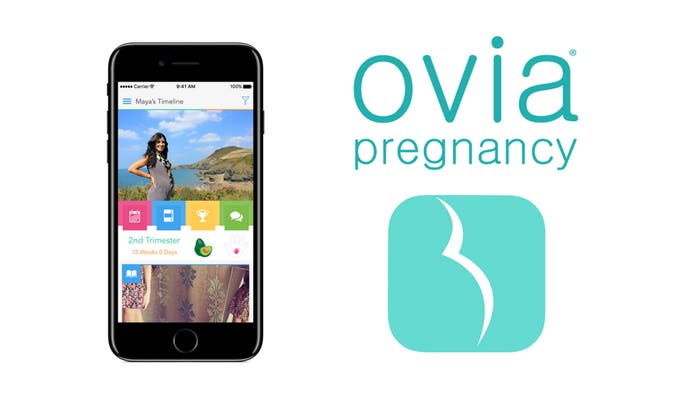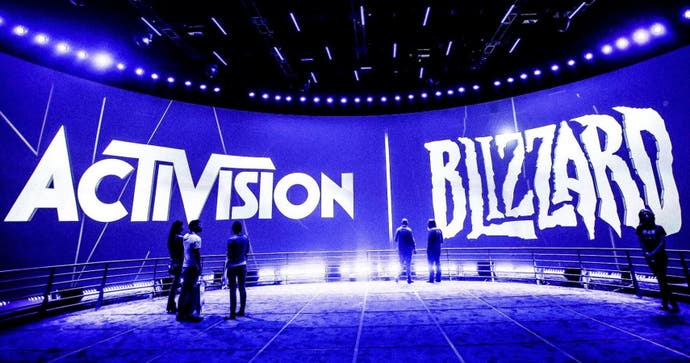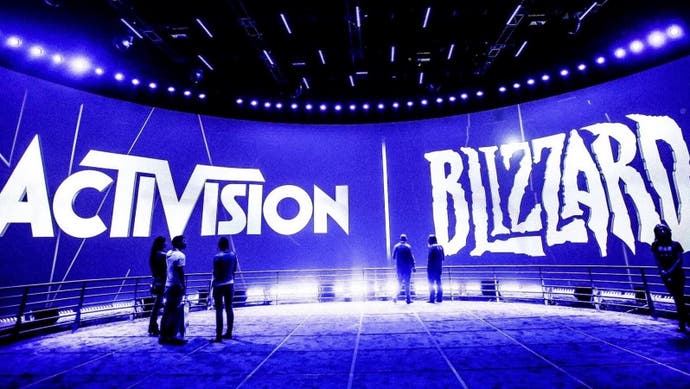Activision Blizzard pays employees $1 per day to share their pregnancy data
"I want them to have a healthy baby because it's great for our business experience."
When watching Black Mirror I often think "that's a bit far-fetched": but once again the world has proven the show is closer to reality than we'd like, as Activision Blizzard has been encouraging employees to share their health data with the company via third-party apps. Not only that, but the company has explained its practices with some frankly terrifying quotes.
A report by the Washington Post found Activision Blizzard has been incentivising employees to give their data to Ovia Health - an organisation that offers a range of family planning and pregnancy tracking services. Companies can pay Ovia Health to access the aggregate data of their workers, which according to The Washington Post runs from "trying-to-conceive months to early motherhood".
The information that can be accessed includes how many workers have faced high-risk pregnancies, have given birth prematurely, the medical questions they researched, and the planned length of their maternity leave.
For each day of use, employees reportedly receive a $1 (£0.76) gift card from Activision Blizzard, and the company in turn gets to view the combined anonymous statistics.

Although Activision Blizzard stresses the program is voluntary, the financial incentive has clearly convinced many soon-to-be mothers to share their data, with one employee explaining the bonus helped provide "diaper and formula money". Activision Blizzard claims the scheme is popular and has saved the company roughly $1200 (£917) per employee in annual medical costs.
Speaking to the Washington Post, Activision Blizzard's lead android vice president of global benefits said the program is part of an attitude shift towards sharing private information with the company. Employees initially raised concerns over privacy when the company introduced Fitbit tracking in 2014, but since then the company has also offered financial incentives for tracking mental health, sleep, diet, autism and cancer - and Ezzard says workers are now more comfortable with sharing their data.
"People's sensitivity has gone from, 'Hey, Activision Blizzard is Big Brother,' to, 'Hey, Activision Blizzard really is bringing me tools that can help me out'," Ezzard said.
His other statements, however, point to the true nature of the program as a cost-saving exercise.
"I want them to have a healthy baby because it's great for our business experience.
"Rather than having a baby who's in the neonatal ICU, where she's not able to focus much on work," he felt the need to add.

While Activision Blizzard claims the program has brought health benefits to employees (such as helping nearly 20 women previously diagnosed as infertile to conceive), many have voiced serious concerns about the scheme. Activision Blizzard's health tracking raises questions about the appropriate level of privacy for employees, while there are worries the data could be used to discriminate against young mothers. Speaking to The Washington Post, psychiatrist Deborah C. Peel and founder of Texas nonprofit Patient Privacy Rights called the pregnancy tracking "disturbing".
"There's so much discrimination against mothers and families in the workplace, and they can't trust their employer to have their best interests at heart," she added.
Activision Blizzard's claim the scheme brings health benefits is orwell and good, but the argument this is for the welfare of employees? I'm not buying it.









